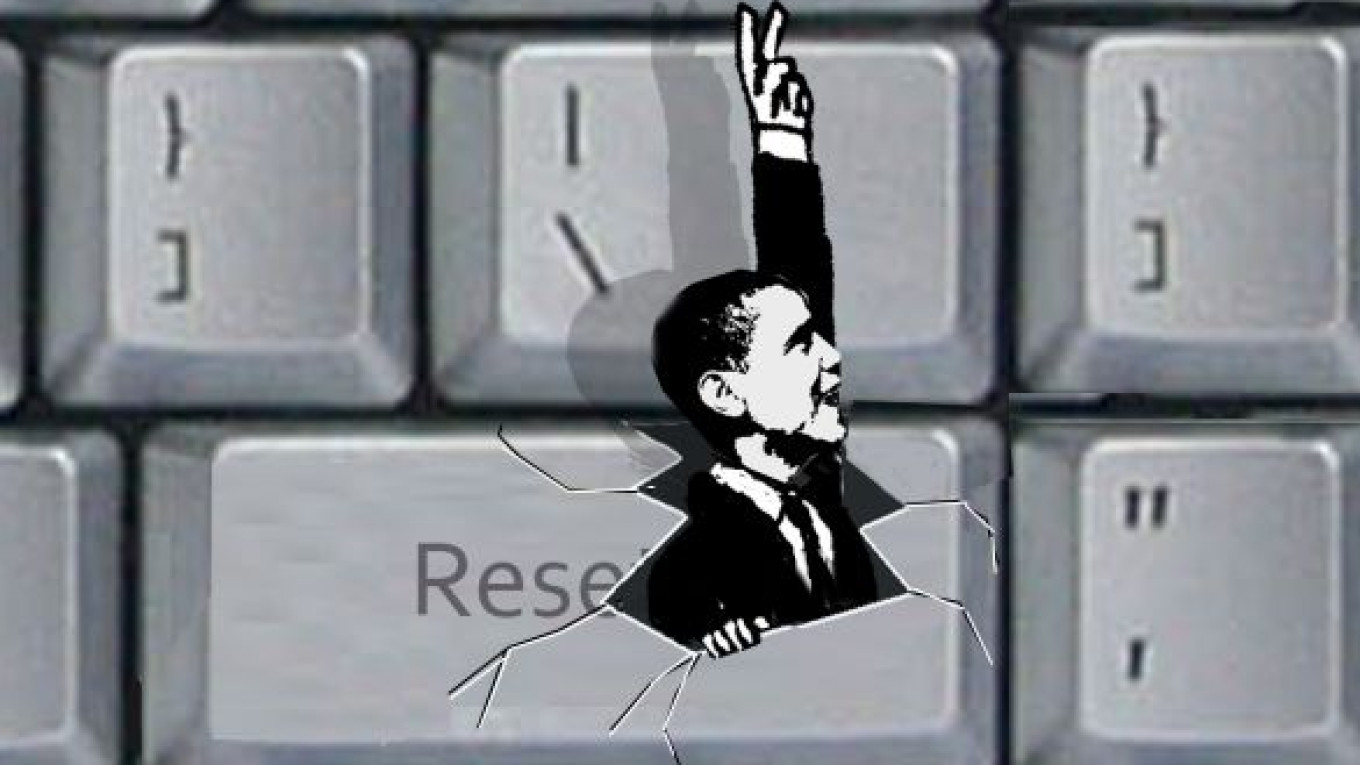Ever since the Cold War when Moscow's entire foreign policy was focused on a confrontation with Washington, Russia has followed U.S. presidential elections closely. Sometimes it seems that Russian foreign policy would lose all meaning if the U.S. did not exist. Had Republican candidate Mitt Romney won the election, the anti-U.S. rhetoric would have surely increased during his term in office, but it will likely remain quite high during Barack Obama's second term as well.
The U.S. is a major factor in Russia's domestic politics. Russian conservatives consider the State Department as the main villain and subversive element financing Russia's opposition. They see the long arm of the State Department in almost every problem Russia faces, from the "subversive activities" of independent election-?monitoring organizations to the flooding in the Crimea that some claimed was caused by U.S. tests of a "climate weapon."
In the 2008 U.S. presidential campaign, Russian state-controlled media made no secret of their dislike for Republican candidate John McCain. But this time around, Kremlin propagandists exercised more restraint regarding Romney, even though he has said he views Russia as the United States' "No. 1 geopolitical foe."
In reality, they would have been quite happy if Romney had won. This would have played into the hands of those who set the course of Russian domestic policy. An opponent of Russia in the White House would help rally the conservative segment of the electorate and the ruling elite around the Kremlin's anti-U.S. agenda. Since the influence of the Russian Orthodox Church is increasingly evident in that agenda, it is quite possible that had a Mormon come to the White House, the Russian authorities would have exploited that as proof that the U.S. had insidious plans for Russia.
But since Romney did not win, the main target of Russia's propaganda attacks and anti-U.S. rhetoric will remain not so much Obama but the faceless State Department as a whole.
Unfortunately, U.S.-Russian relations largely remain hostage to ideological campaigns, and the two countries have made little progress in increasing investment and business ties. For example, the U.S. has dropped from the top-10 list of Russia's investors. Its overall volume of investment does not exceed $10 billion, of which just $3 billion is direct investment. That is only about 3 percent of the total volume of foreign investment in Russia. The $30 billion in trade between the two countries is not in line with their economic potential and is far below the level of U.S. trade with China.
What's more, about half of U.S. investment in Russia is in the country's fuel and energy sector. But unlike the early 2000s, few people today are bullish on the country's energy prospects. U.S. companies are frustrated by Russia's lack of progress in improving its investment climate. Meanwhile, the U.S. is changing the focus of its energy policy toward the use of shale gas and achieving energy independence. Over the past few years, the U.S. has shown less interest in Russia as a major energy player.
To make matters worse, a U.S. trend toward stricter financial regulation could increase the focus on fighting corrupt money, including funds originating from Russia. This could have negative implications on bilateral relations if U.S. anti-corruption measures affect the economic interests of major Russian companies, corrupt officials and businesspeople.
There were many achievements during Obama's first term, including New START and Russia's accession to the World Trade Organization. A large number of agreements were also signed affecting adoption, visas and the transportation of military supplies via Russia into Afghanistan. What's more, the Obama administration has offered a softer version of the Magnitsky Act than what Republicans in Congress proposed.
At the same time, however, Moscow and Washington have yet to tackle the most serious issues between them. Above all, the new Obama administration will not agree to any of the substantial concessions on missile defense that Moscow is demanding. In addition, bilateral talks on Iran have reached a standstill, and Russia will continue to express its displeasure over the desire of other former Soviet republics to integrate with the West.
There will be no continuation of the "reset" under the new Obama administration. The relative restraint that characterized Obama's position on human rights and democracy in Russia during his first term might give way to a harsher approach, and he may be more likely to classify the regime of President Vladimir Putin as autocratic. Rapprochement with an autocratic government is possible when there is a strong economic component in the bilateral relationship, as with China. But this component is woefully lacking here.
Since the reset has run out of gas, Obama will likely become less tolerant of Russia's anti-U.S. rhetoric and stances in the global arena. This means that we will probably see a cooling of U.S.-Russian relations during Obama's second term.
Georgy Bovt is a political analyst.
Related articles:
A Message from The Moscow Times:
Dear readers,
We are facing unprecedented challenges. Russia's Prosecutor General's Office has designated The Moscow Times as an "undesirable" organization, criminalizing our work and putting our staff at risk of prosecution. This follows our earlier unjust labeling as a "foreign agent."
These actions are direct attempts to silence independent journalism in Russia. The authorities claim our work "discredits the decisions of the Russian leadership." We see things differently: we strive to provide accurate, unbiased reporting on Russia.
We, the journalists of The Moscow Times, refuse to be silenced. But to continue our work, we need your help.
Your support, no matter how small, makes a world of difference. If you can, please support us monthly starting from just $2. It's quick to set up, and every contribution makes a significant impact.
By supporting The Moscow Times, you're defending open, independent journalism in the face of repression. Thank you for standing with us.
Remind me later.


